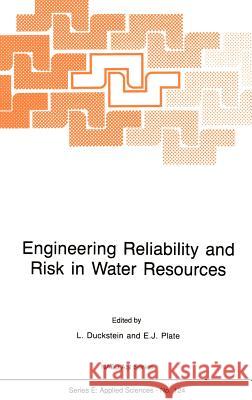Engineering Reliability and Risk in Water Resources » książka
Engineering Reliability and Risk in Water Resources
ISBN-13: 9789024734924 / Angielski / Twarda / 1987 / 588 str.
Hydraulic, hydrologic and water resources engineers have been concerned for a long time about failure phenomena. One of the major concerns is the definition of a failure event E, of its probability of occurrence PtE), and of the complementary notion of reliability. However, as the stochastic aspects of hydraulics and water resources engineering were developed, words such as "failure," "reliability," and "risk" took on different meanings for different specialists. For example, "risk" is defined in a Bayesian framework as the expected loss resulting from a precisely defined failure event, while according to the practice of stochastic hydraulics it is the probability of occurrence of a failure event. The need to standardize the various concepts and operational definitions generated numerous exciting discussions between the co-editors of this book during 1983-84 when L. Duckstein, under sponsorship of the Alexander von Humboldt Foundation (FRG), was working with E. Plate at the Institute of Hydrology and Water Resources of the University of Karlsruhe. After consulting with the Scientific Affairs Division of NATO, an organizing committee was formed. This comittee -- J. Bernier (France), M. Benedini (Italy), S. Sorooshian (U. S. A. ), and co-directors L. Duckstein (U. S. A. ) and E. J. Plate (F. R. G. ) -- brought into being this NATO Advanced Study Institute (ASI). Precisely stated, the purpose of this ASI was to present a tutorial overview of existing work in the broad area of reliability while also pointing out topics for further development.











